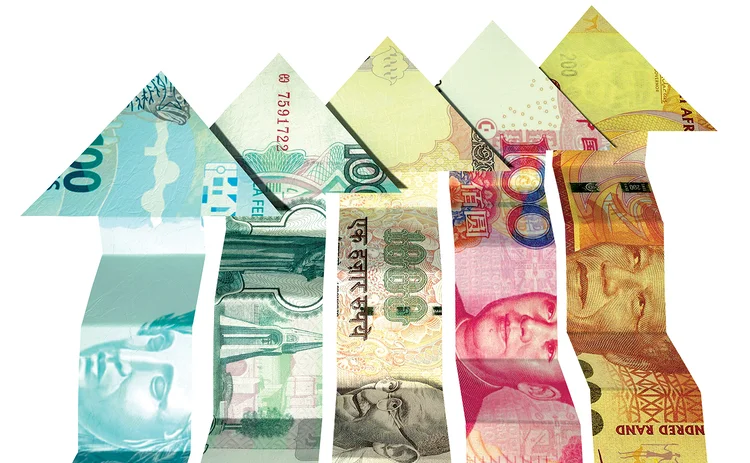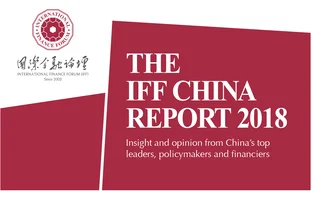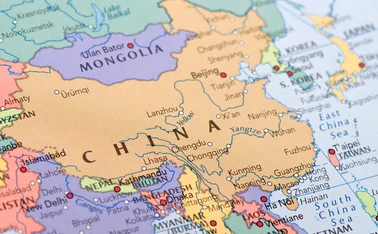
Globalisation resurgent – The post‑financial crisis world
Zhu Xian, vice-president of the New Development Bank, recognises that continuing to grow the power and maturity of the developing world as a player in the global marketplace depends on structural adjustment and reform


The world’s major economies are gathering pace compared with 12–18 months ago, with markets and global financial organisations foreseeing better economic growth. However, the world economy is still trapped in what the International Monetary Fund (IMF) terms the “new mediocre”, as improvement still appears weak. Some commentators assert that the economy might stay in the doldrums, but not go to extremes – which still sounds positive.
In these circumstances, governments and enterprises should be prepared to wait some time for the next round of constant and strong growth because the financial crisis of 2007–2008 has had not only a cyclical impact, but a structural one.
Each country’s economic policies and reforms have their own distinctive directions and strengths. In politics, the economy and society as a whole, current reforms are as insufficient as a surgeon giving a pill to a patient requiring immediate surgery. However, conservative treatment is the only option for some countries because of political, economic and cultural limitations. Without more drastic structural economic reforms, negative effects may still appear in middle- or long-term growth.

The unpredictable effects of globalisation
The problem with globalisation is twofold. First, in the past two decades, unequal redistribution in finance and other areas has damaged the interests of low-income and middle-class populations worldwide. This problem should be heeded in subsequent economic or global governance reform. Unequal redistribution also reflects the conflict between the old and new economies. With the rise of populism in the West, some clearly conceive globalisation negatively, fearing damage to their vested interests. The intensity of this fear should not be underestimated.
China should be prepared to do its part when confronting these complex and unpredictable economic trends. It should press ahead with reform set out by the 19th National Congress of the Communist Party of China, in particular by rectifying structural economic imbalance, enabling it to swiftly transform the Chinese economy from one of mere investment and expansion to one of quality and efficiency.
Second, many argue that the current global governance system cannot meet the new needs of globalisation. In the past two decades, emerging market economies and developing countries have made remarkable progress, creating 80% of world economic growth, with the greatest contribution to this coming from China. Emerging markets now account for 40% of the global economy. These developing countries and emerging market economies understandably hope to have a louder voice and a greater platform in the global economic governance system.
However, progress is very slow. The majority of policymakers remain member countries of the Organisation for Economic Co-operation and Development (OECD), headed by the US. What problems does this cause? Policymakers are more concerned with their own interests when formulating rules, and often have double standards. During the financial crisis, the IMF carried out the demands of OECD countries by applying rigid limitations to developing countries, regardless of the conditions there – especially economic, social and political endurance. For example, the US and Europe adopted quantitative-easing monetary policies after the financial crisis, but few authorities considered the spill-over effect on the macroeconomy.
Appeals from developing countries have not been satisfied, but the developing world has not yet come up with a clear and practical plan to adjust the current economic governance system. Developing countries account for a growing portion of the world economy, and their power, scale and maturity should not be underestimated. Therefore, the focus of future economic governance reform should be on how to maximise the interests of all parties. The last negotiations at the World Trade Organization broke down because of disagreements between the OECD and developing countries. We must work harder together to achieve a better future.
The BRI and Brics
The Belt and Road Initiative (BRI) is an interconnected proposal to build infrastructure in countries along the Silk Road Economic Belt. But, from a strategic perspective – and in accordance with China’s experience of reform and ‘opening‑up’ over the past 40 years – the BRI should be put into a global context. It can help lower-income and developing countries participate actively in globalisation and can become an opportunity for developing countries to better integrate into the world economy and the global supply chain. It should not be thought of as a mere infrastructure plan, but as an asset of high strategic value.
The New Development Bank mobilised resources for projects in the Brics nations – Brazil, Russia, India, China and South Africa – where it was founded. With the exception of China, the Brics nations foresee better economic indexes after the last financial crisis, but are also confronted by challenges. Many governments lack the political courage to carry out imperative structural adjustments, especially in ‘resource-cursed’ countries that rely heavily on exports of primary products and regard them as pillars of their economic structure. Owing to the relatively easy access to primary resources, other economic sectors – such as manufacturing and service industries – may suffer. Currently, the Brics nations enjoy good momentum, though this trend’s continuation depends on their governments’ courage to carry out structural adjustment and reform.
To summarise, the five Brics nations – all of which are large economies – can establish themselves as world pillars and the greatest endorsement of the strength of emerging market economies and developing countries.
Only users who have a paid subscription or are part of a corporate subscription are able to print or copy content.
To access these options, along with all other subscription benefits, please contact info@centralbanking.com or view our subscription options here: www.centralbanking.com/subscriptions
You are currently unable to print this content. Please contact info@centralbanking.com to find out more.
You are currently unable to copy this content. Please contact info@centralbanking.com to find out more.
Copyright Infopro Digital Limited. All rights reserved.
As outlined in our terms and conditions, https://www.infopro-digital.com/terms-and-conditions/subscriptions/ (point 2.4), printing is limited to a single copy.
If you would like to purchase additional rights please email info@centralbanking.com
Copyright Infopro Digital Limited. All rights reserved.
You may share this content using our article tools. As outlined in our terms and conditions, https://www.infopro-digital.com/terms-and-conditions/subscriptions/ (clause 2.4), an Authorised User may only make one copy of the materials for their own personal use. You must also comply with the restrictions in clause 2.5.
If you would like to purchase additional rights please email info@centralbanking.com







